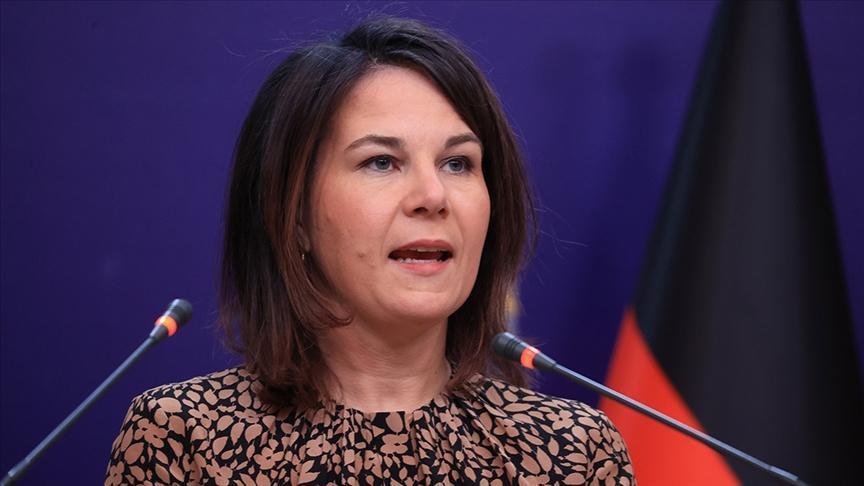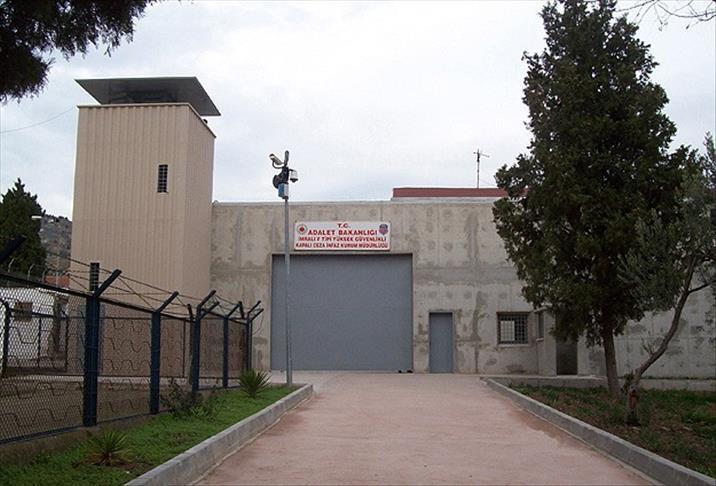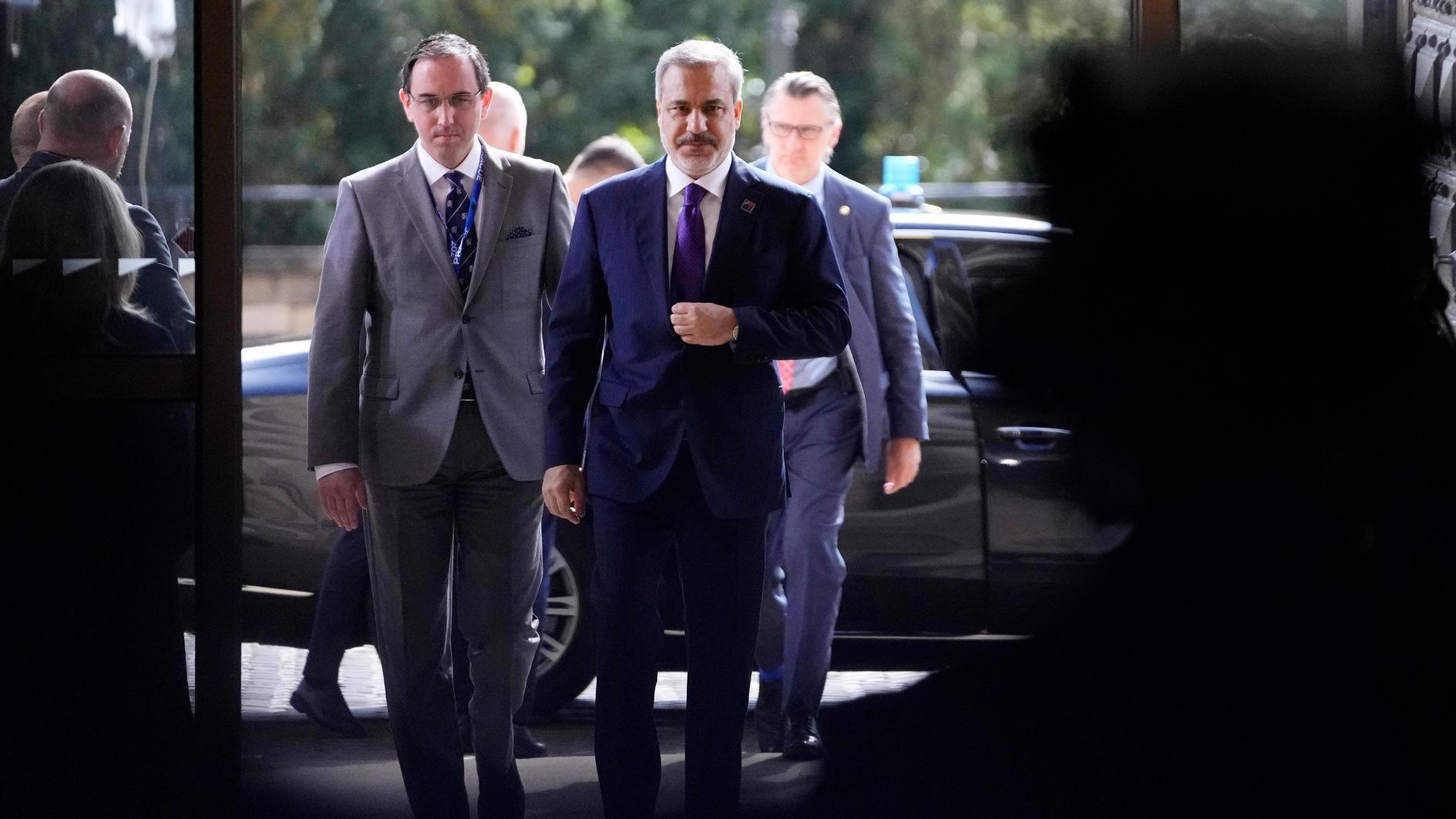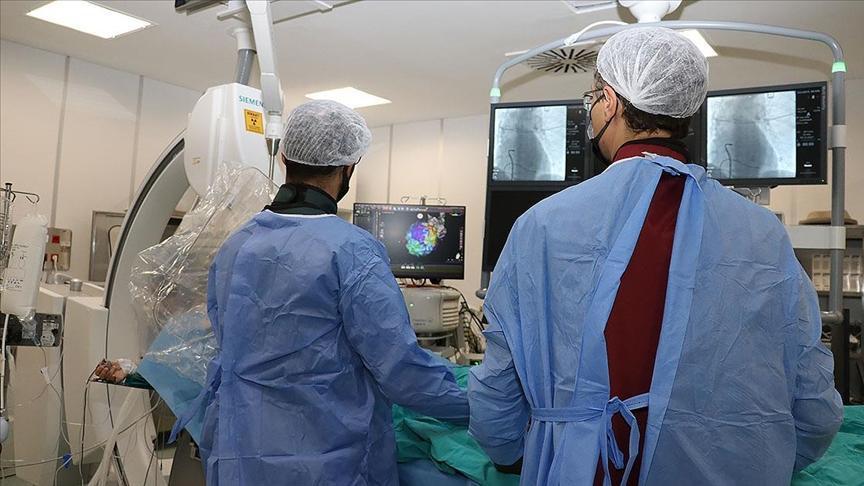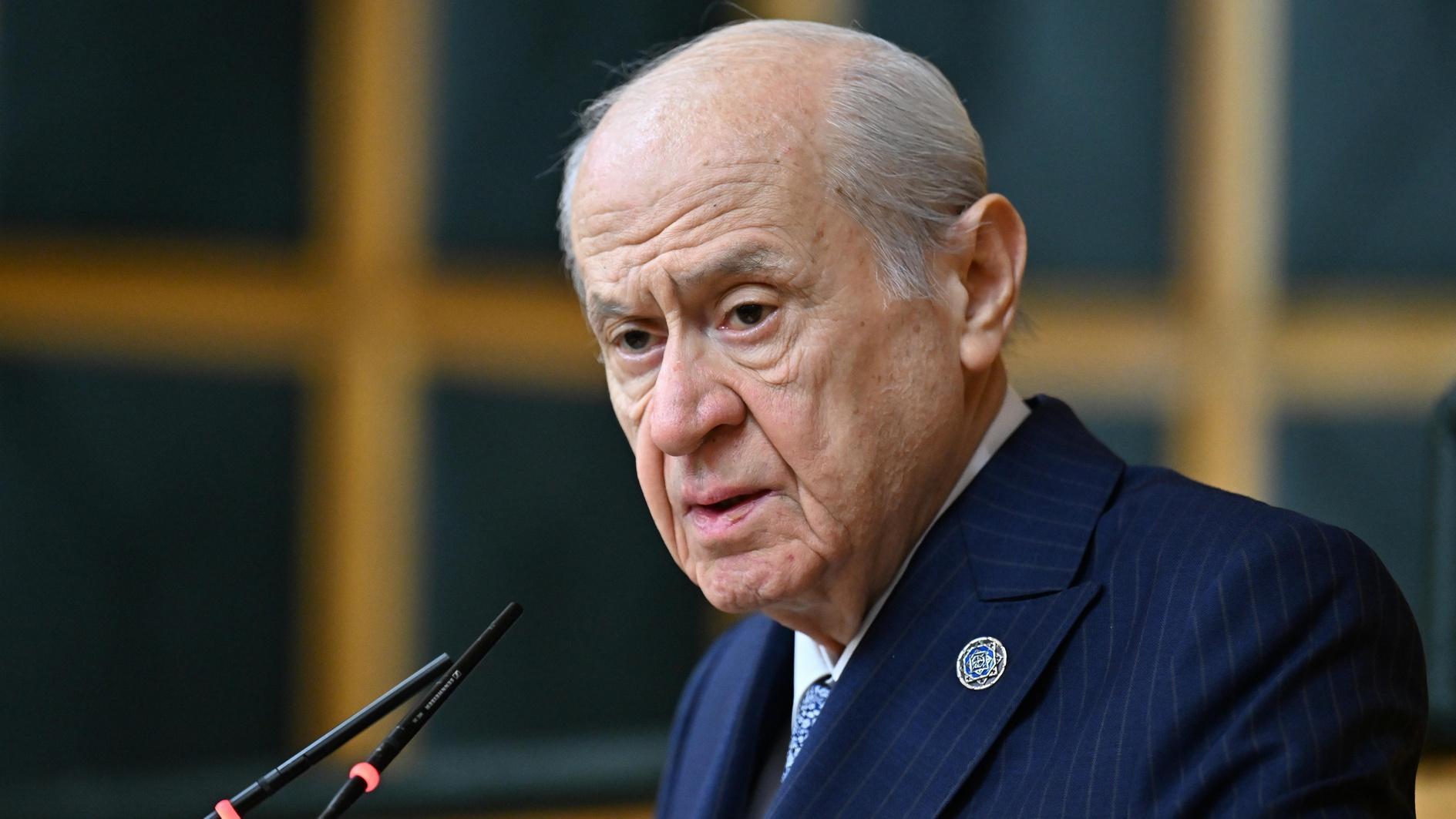1,500 protesters detained in Ankara police roughhouse : Main opposition deputy
Nisan Su Aras - ANKARA
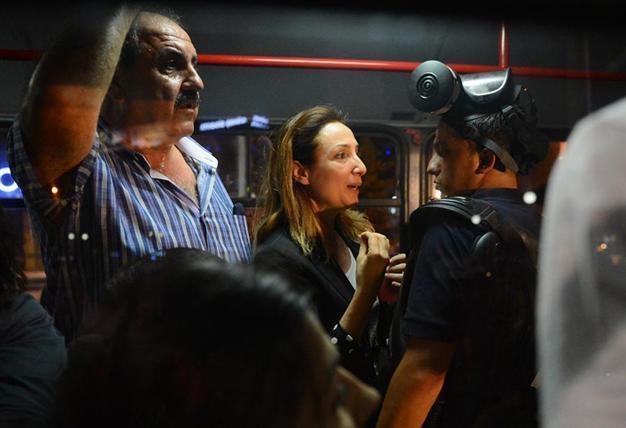
Main opposition deputy Aylin Nazlıaka (C) is seen in a police bus with detained people and police. At least 1,500 people protesting in Ankara out of solidarity with Taksim have been detained, she says. AA photo
At least 1,500 people protesting in Ankara out of solidarity with Taksim have been detained, handcuffed and denied access to lawyers, according to main opposition deputy Aylin Nazlıaka.“There were about 1,500 in custody. While we were there [in the police department], nine other buses arrived,” Republican People’s Party (CHP) deputy Nazlıaka told the Hürriyet Daily News today.
The Interior Ministry announced early today that 500 were in custody in Ankara.
The detainees were photographed and made to sign testimony, Nazlıaka said, while rebuking Prime Minister Recep Tayyip Erdoğan, arguing he has “blood” on his hands.
Before being taken into custody, Nazlıaka visited the Numune and İbni Sina hospitals where injured protesters were receiving treatment, saying she had witnessed a protester named Seval Erol arriving in serious condition after being struck in the head by a tear gas capsule.
“People in infirmaries in Numune and İbni Sina hospitals said the police intervention was disproportionate and that they effectively aimed to hit them on the head [with their gas bombs],” she said.
Nazlıaka said there were buses in front of the Kızılay Shopping Mall where numerous municipality buses were waiting. “They were piling up everyone they captured from the shopping mall there like sardines.”
Handcuffed in airless environment
“I tried to stop the buses, by standing in front of them, by shielding with my body. When I could not stop them, I got inside the bus and alongside protesters under custody, we were brought to the police department in a jam-packed, airless environment in which one could hardly breathe. Some of the protesters were handcuffed. These handcuffs were made from plastic material. The wrists of some protesters were bleeding. Some lost consciousness because they were too tight.”
She also said she demanded that the police remove the handcuffs, but the call was refused.
“Some faced physical violence while getting into [the buses], such as being roughed up and beaten by police batons,” she said, adding that there was no physical violence in the police department.
Nazlıaka moved to a sports hall where protesters were being held. “I was there until morning. The hall was very crowded and airless,” she said, adding that the need for water was being catered for.
Photographs taken with no access to lawyers
“At this stage, the [protesters] were not allowed to meet their lawyers. Their photographs were taken. This is not a practice based on law. But they were told that if they did not allow their photographs to be taken, they would be held there for a longer time. It has been said that the photographs will be used for comparison with videos to determine who harmed public property,” Nazlıaka said.
She also said the police relayed that it was necessary to take photographs to expedite the process because there were too many people in custody.
But Nazlıaka accused the police of detaining everyone in the vicinity, including passersby.
She also said the police were trying to force protesters to sign testimonies. “In these proceedings, there was an expression about being caught in an action against the law. We talked to lawyers and warned the protesters. They signed after crossing off those expressions.”
She also said protesters being held in custody were made to submit their identity cards and telephones. “Since all the information in their telephones will be recorded, they will not be able to get their telephones back for a couple of days.”
She also said no one had been released by 6 a.m. this morning.
‘Blood on Erdoğan’s hands’
“This is a civil movement in the literal sense. If [Prime Minister] Recep Tayyip Erdoğan had seen and talked to those under custody, he would understand that a lot of people were not there under the guidance of a political party, but as a part of uprising movement against an authoritarian and oppressive regime,” Nazlıaka said.
“There is blood on Recep Tayyip Erdoğan’s hands. No matter how much he washes his hands, this strain will not come out, and it will go down in history as a source of shame,” Nazlıaka said.


